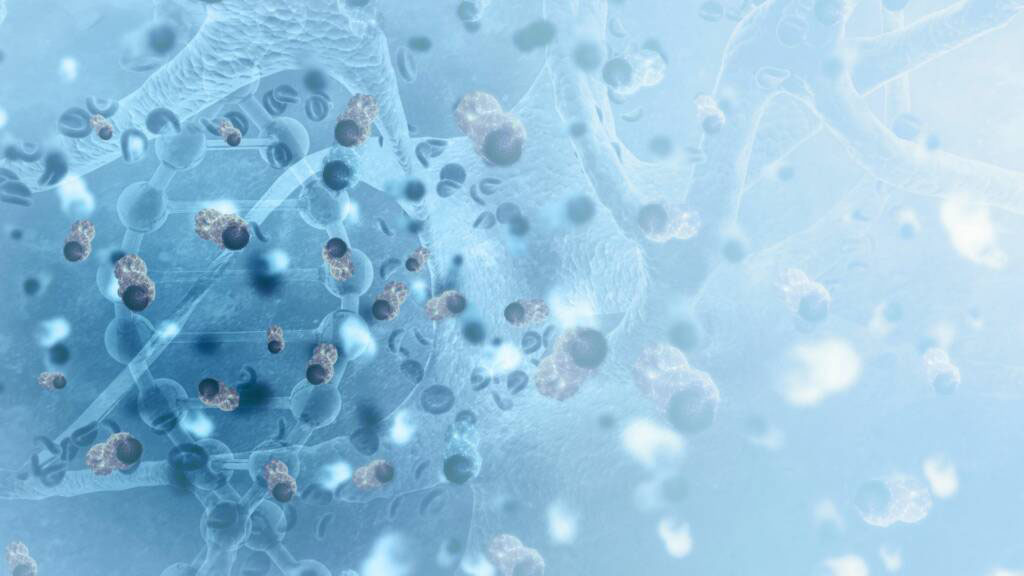As the years pass, our cells undergo natural wear and tear, leading to visible signs of aging and numerous health problems. This process is inevitable, but the rate at which it occurs can largely depend on us. In fact, many factors influencing the aging process are under our control. Lifestyle, dietary habits, physical activity, stress management, and sleep quality are crucial for our cellular health. In this article, we will explore how lifestyle and diet can impact health and share some interesting facts on the topic. Understanding these relationships can help us make informed decisions that slow down cellular aging and improve our overall well-being and quality of life.
Little Factories and Cellular Aging
This process is where our cells begin to function less efficiently over time. Imagine cells as small machines in a vast factory—our body—that produce substances essential for life and repair damage. Over the years, these machines wear out and start to work slower, leading to our bodies aging and various health issues emerging.
In more biological terms, this process involves several mechanisms, such as DNA damage, telomere shortening, oxidative stress, and changes in mitochondrial function. However, we can slow down this process by maintaining a healthy lifestyle and a proper diet, which allows cells to retain their efficiency and health longer.

The Impact of Lifestyle on the Cellular Aging Process
Physical Activity
Regular physical activity is one of the most effective ways to slow down cellular aging. Aerobic exercises, such as running, swimming, or cycling, enhance cardiovascular efficiency and improve mitochondrial function. Additionally, physical activity helps reduce oxidative stress and supports DNA repair.

Sleep
Adequate quantity and quality of sleep are essential for cellular health. During sleep, the body conducts various repair processes, including DNA repair and the removal of damaged cells. Lack of sleep can lead to increased oxidative stress and accelerated cellular aging.


Sleep
Adequate quantity and quality of sleep are essential for cellular health. During sleep, the body conducts various repair processes, including DNA repair and the removal of damaged cells. Lack of sleep can lead to increased oxidative stress and accelerated cellular aging.
Avoiding Stress
Chronic stress negatively affects cellular health by increasing cortisol levels and oxidative stress. Relaxation techniques like meditation, yoga, or mindfulness can help reduce stress and support cellular health.

The Beneficial Impact of Diet

Antioxidants
- Berries: Blueberries, raspberries, strawberries, and other berries are rich in vitamin C and other antioxidants that help protect cells.
- Green tea: Contains catechins, which have strong antioxidant properties.
- Dark chocolate: High in flavonoids, which protect cells from damage.
- Walnuts: Provide vitamin E, a powerful antioxidant.
Omega-3 Fatty Acids
Polyphenols
Polyphenols are a group of plant compounds with strong antioxidant properties. They are found in fruits, vegetables, tea, coffee, and red wine, where they beneficially affect heart and cellular health. They can also support DNA repair and protect cells from oxidative stress.
A Curious Fact about Blue Zones - The Secret to Longevity?
Blue Zones are unique regions in the world where people live significantly longer than average and enjoy good health. The five main Blue Zones are:
- Okinawa, Japan
- Sardinia, Italy
- Ikaria, Greece
- Nicoya, Costa Rica
- Loma Linda, California, USA
Research shows that residents of these zones lead active lifestyles, consume plenty of fruits and vegetables, and have strong social ties, all contributing to slower cellular aging. The positive impact of the Japanese diet on health was discussed in this article. Blue Zone inhabitants also often have a strong sense of purpose, which is linked to longer and healthier lives. Okinawans in Japan call it “ikigai,” while Nicoyans in Costa Rica refer to it as “plan de vida.” Having a life purpose motivates taking care of oneself and making healthy choices.
Conclusion
Cellular aging is a natural process that can be slowed down through a healthy lifestyle and proper diet. Regular physical activity, avoiding stress, and ensuring adequate sleep are crucial for cellular health. A diet rich in antioxidants, omega-3 fatty acids, and polyphenols can support cells’ repair and protective mechanisms. Adopting healthy habits can not only delay cellular aging but also improve overall health and quality of life.
Remember, everyone can influence their cellular health through daily choices. Let’s take care of ourselves to enjoy a long and healthy life.


